The most dangerous denier is the person who believes they aren’t a denier. The person who recognizes what’s obvious, what’s scientifically proven, what we see and feel every day, like the planet growing hotter, but who continues to live as if their life and everyone else’s weren’t under lethal threat. Right now, we in Brazil have brutal evidence of just how powerful this denialism is: from north to south, the country is under a haze of smoke from fires raging in the Amazon Forest, Pantanal, Cerrado, and Atlantic Forest. Even monoculture fields planted where Nature once reigned are burning. Most of these fires were set by human hands, and the 2024 dry season got off to an early and especially severe start in the Amazon. Classes were suspended in São Paulo and families forced to leave their homes in the region of Ribeirão Preto, some 300 kilometers from the state capital. The skies over the far southern state of Rio Grande do Sul turned ash-gray, while its population was still grappling with the consequences of its most extreme weather event ever – the devastating floods that hit earlier this year. And yet the climate collapse isn’t at the top of the agenda in the debate leading up to October’s nationwide local elections—oftentimes, neither questions nor answers even hint at the topic. The climate collapse is not a priority in everyday actions, nor do most media outlets feature it in their headlines for more than a day or two. Climate collapse is not the first thought on most people’s minds.
This is denialism. This is being aware of what’s happening but denying it so you can go on with your life, as if the threat might miraculously vanish. This denialism is killing us and making it ever more challenging to stop global heating, climate change, and the overwhelming loss of biodiversity. It isn’t a matter of demanding changes by individuals, as if one person alone were individually to blame for the collapse and could be individually responsible for the solution. We know that one person only counts as one—and counting as one doesn’t count. But this also doesn’t exempt anyone from making tough individual changes and, above all, from taking action to form the collectives that can indeed make a difference. No one has the right to do nothing, given what lies before us, because we have a responsibility toward others—and we have a responsibility toward what is done in our name.
Those who are pushing our planet-house to the point of collapse will not stop. Only we, collectively, can stop them, by acting politically—in the broad, beautiful sense of the latter word. Acting by voting and by taking part in decisions in the Legislative and Executive branches and in all spaces, public and private alike. Democracy has to be about much more than voting, and even when it’s just voting, Brazilians have been doing a bad job of it—otherwise, far-rightist Jair Bolsonaro would never have been elected, nor could a candidate like Pablo Marçal run for mayor of São Paulo, someone who isn’t even qualified to run for human being. To make matters worse, once most people have voted, they quit participating or keeping an eye on what is being done in their names.
Of course, we also need to make radical changes in our behavior and consumption at home, because it all starts from the inside. By doing the obvious, making the real priority our real priority. By no longer denying that we’re denying.
At SUMAÚMA, we have repeatedly pointed out that we must overcome this denialism to have any chance of preventing further burning of our planet-home, more human deaths, increasingly frequent disasters like in Rio Grande do Sul, and the possibility that devastating droughts, such as the one in the Amazon, will take the Rainforest to the point of no return. Because, we repeat, the planet-eaters are not going to stop.
Publicly recognized deniers like Donald Trump, Jair Bolsonaro, and so many others know full well that the climate collapse is real, but they have chosen to deny it because they would rather profit in the present than worry about the next day, even if this costs millions of human lives and the extinction of thousands of species. The same goes for lobbyists and representatives of predatory agribusiness, who fund and dominate much of the Brazilian Congress and heavily influence the administration of Luiz Inácio Lula da Silva (Workers’ Party). They and the transnational corporations that support them—like the fossil fuel (oil, coal, and natural gas), meat, soy, and mining industries, alongside their sustaining networks—will continue accelerating things. For them, denialism is a strategy; for most people, it’s suicide.
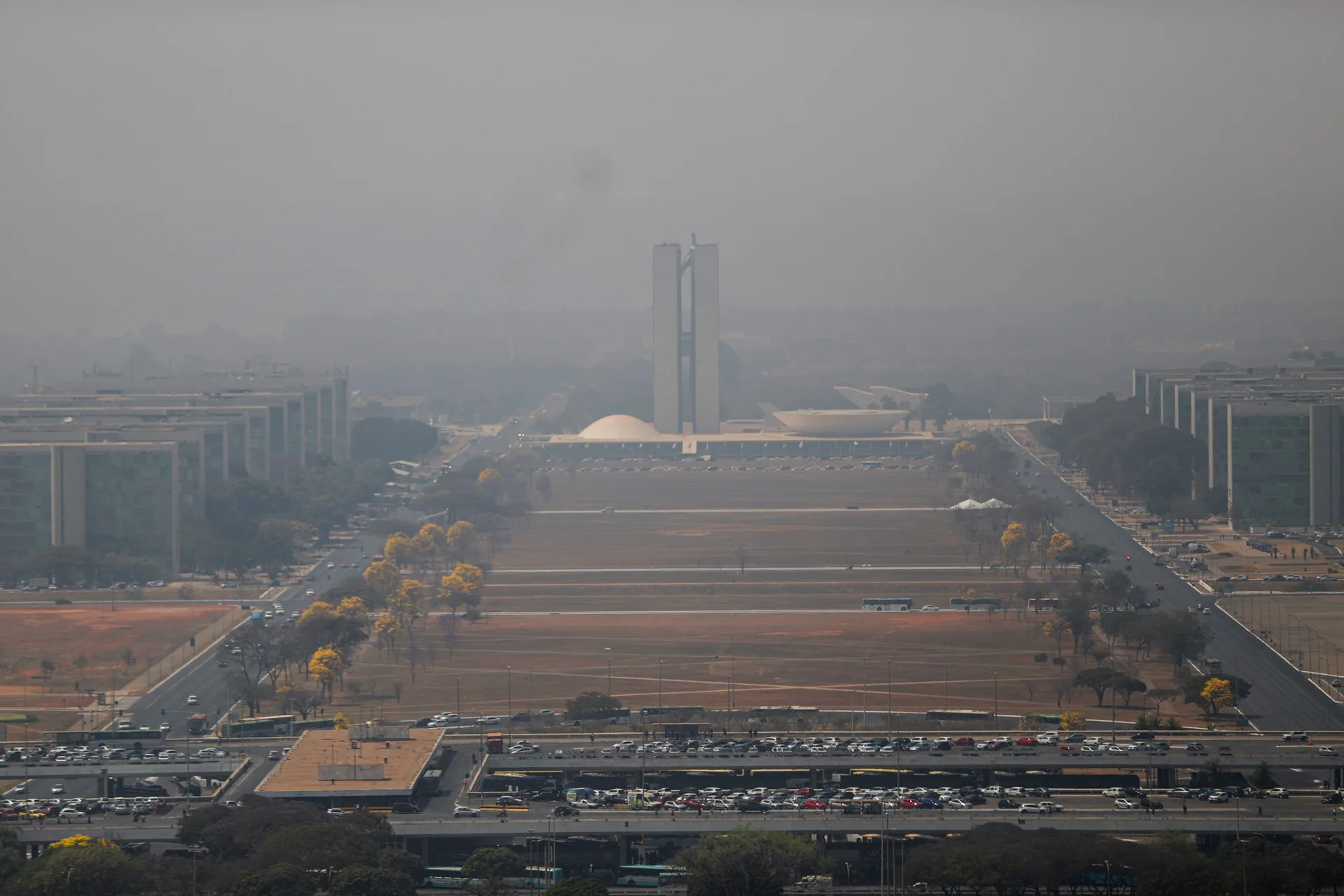
Brasília was shrouded in smoke from forest fires on August 26, but this hasn’t diminished the killer instinct of members of Congress. Photo: Joédson Alves/Agência Brasil
Globally, just look at today’s wars—and let’s emphasize that Brazil supplies 9% of Israel’s oil, while this Middle Eastern country has been massacring the Palestinian people for months. Even with the recent 12-month stretch when the world’s temperature averaged 1.64º C above preindustrial levels, rulers like Israeli prime minister Benjamin Netanyahu and Russian despot Vladimir Putin are waging wars. Even though this July saw the planet’s five hottest days on record, left-wing dictators like Nicolás Maduro and Daniel Ortega are busy corrupting democracy. And even though scientists have been warning since 2023 that “we have entered uncharted territory” from a climatic point of view, the far right goes about renovating fascism, with Donald Trump leading the fray.
Do you think any of these pathetic little men engaged in their war games care about anyone else’s life but their own?
A few facts: Science can’t identify all the causes behind the drought that hit parts of the Amazon earlier than usual this year, in April, exacerbating the destruction of an already stressed Forest. Despite a substantial drop in deforestation rates in the planet’s largest tropical Rainforest, the number of fires has been at a record high since at least 2010. In some regions of the Amazon, Pantanal, and Cerrado, every day seems like “Fire Day”— August 10, 2019, when landgrabbers and ranchers banded together to burn large swathes of Rainforest in the regions of Novo Progresso and Altamira, Pará.
Faced with the late August forest fires in São Paulo state, Environment and Climate Change Minister Marina Silva said the government was working with the hypothesis that these were the result of coordinated criminal action, similar to “Fire Day.” “We strongly suspect it is happening again,” she stated. “Right now we have a veritable war against fire and crime. […] A number of municipalities are burning at the same time. This isn’t part of our firefighting experience.”
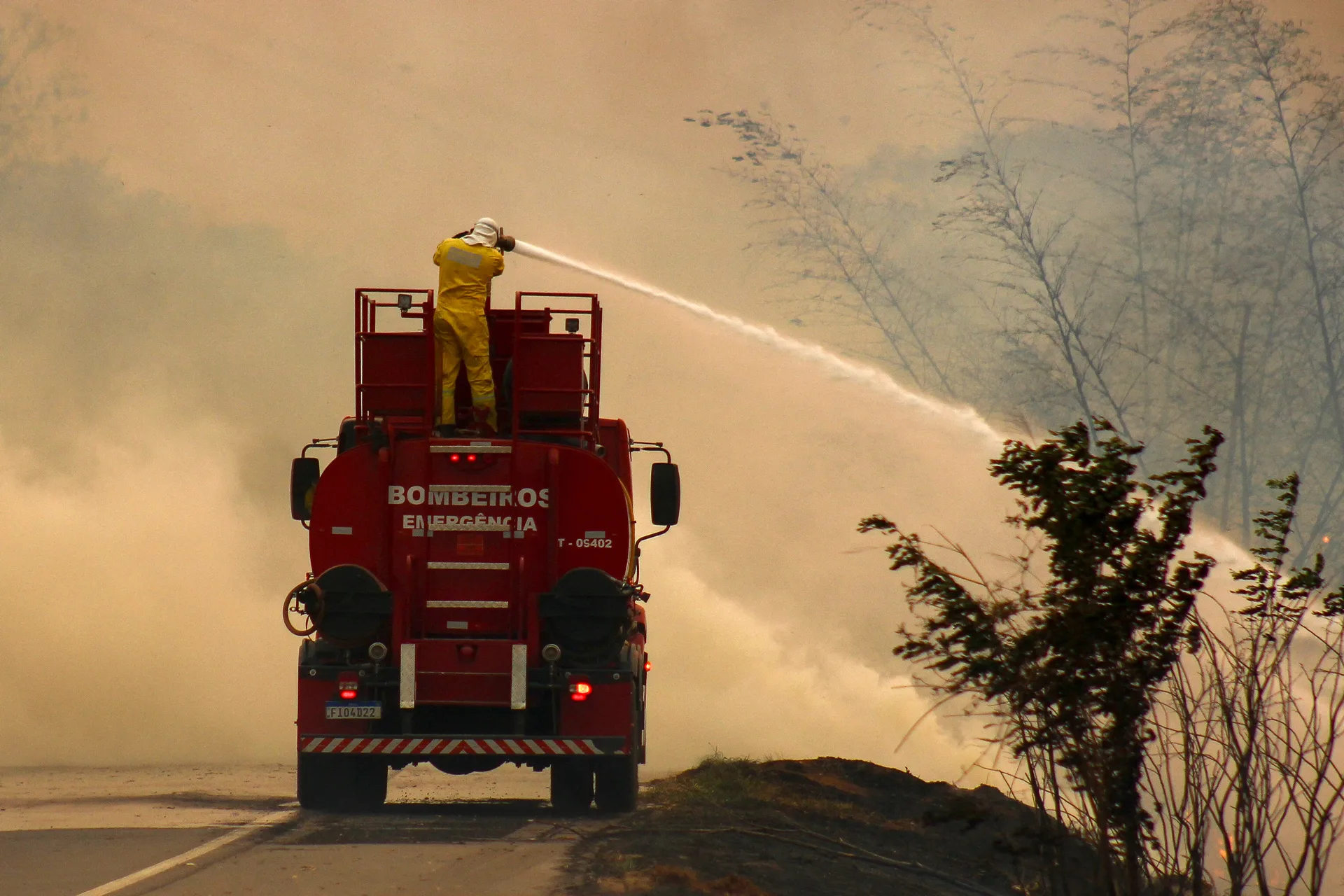
Amid a fire alert in more than 40 cities in São Paulo state, the smoke reached the capital. Photo: Lourival Izaque/AFP
The Amazon’s “flying rivers”—one of the biome’s loveliest creations, produced when trees transpire and release water vapor into the atmosphere—are now carrying smoke from blazing Forests. Meteorologist Marcelo Seluchi, with the National Natural Disaster Monitoring and Alert Center, told the Climate Observatory: “When these fires form, their smoke follows the wind corridor. In the summer, this corridor carries moisture from the Amazon to southern and southeastern Brazil. During the dry season, it carries heat and smoke.”
Kamila Craveira, research analyst with Greenpeace Brasil, spent 14 days visiting parts of the Amazon and Pantanal by land and air. She told the Climate Observatory that it was often impossible to see to the end of the burned areas in the Pantanal. “In one area, we found the bodies of animals of various sizes consumed by the fire: snakes, caymans, all near the road, indicating they had tried to flee and save themselves,” she said. At the end of the expedition, Kamila returned to Manaus, where she lives. There, she found the city “in chaos,” embattled by smoke and extreme heat.
A scientific paper published in the journal Earth System Science Data, which analyzed the period from March 2023 through February 2024, concluded that by aggravating drought and heat, climate change makes fires at least 20 times more likely in the Amazon. Data released in August by the organization MapBiomas showed that in 485 years—from the European invasion in 1500 through 1985—Brazil lost 20% of its natural areas, that is, native vegetation, water surface, and such formations as beaches and dunes. But in less than 40 years, from 1985 to 2023, another 13%, or 110 million hectares, have been wiped out, mostly in the Amazon.
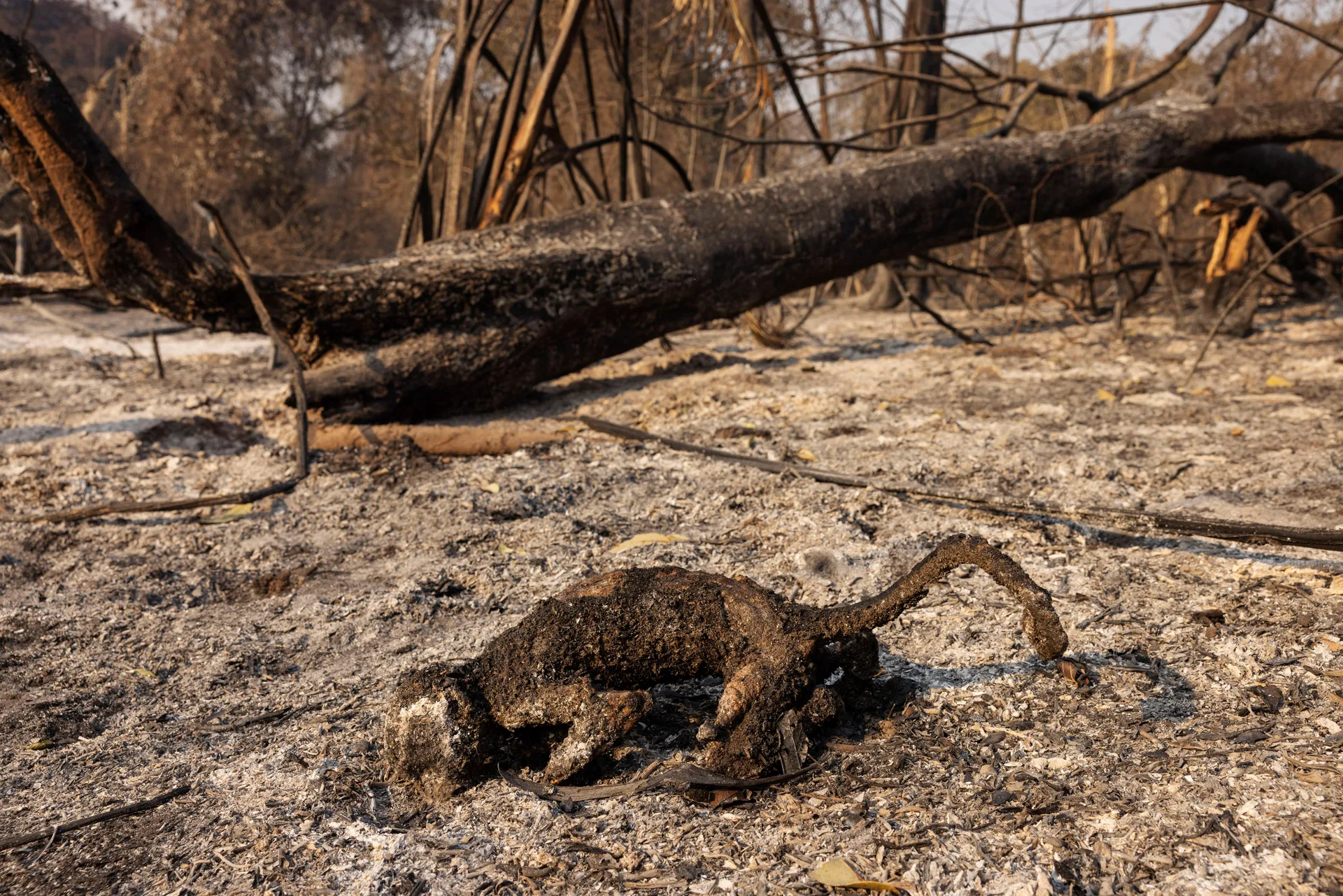
The charred corpse of a capuchin monkey, consumed by the fires once again laying waste to the Pantanal, leading innocent animals to an excruciatingly painful death. Photo: Lalo de Almeida/Folhapress
Whenever the climate changes, it prompts a chain reaction and, according to scientists, the effects are growing more unpredictable. Once seen only as a possibility, it is quickly becoming apparent that alterations to the Atlantic Meridional Overturning Circulation, known as the AMOC, are probable. The names used by scientists don’t help get knowledge where it urgently needs to go, but what is important to know is that the AMOC is a vital set of Atlantic ocean currents that pull warm surface water from the southern hemisphere to the far north, while also moving deep, cold water from north to south. This natural system circulates energy around the planet and modulates global heating, keeping parts of the southern hemisphere from overheating and parts of the northern from getting unbearably cold. At the same time, these currents spread nutrients that sustain life in marine ecosystems.
Recent scientific studies suggest that the AMOC, under the impact of rising ocean temperatures and decreased salinity is headed toward collapse. There are still gaps in the research, but with each new study, what some years ago seemed a mere possibility appears likely to happen this century. One study suggests the change may come before 2050 — or even by the end of the next decade. Increasingly, “if it happens” is turning into “when it happens.” And once it does, parts of the planet will be totally unrecognizable, like a much colder Europe and much hotter tropics. Scientists warn that adapting to a change of this magnitude and speed may not be possible.
You could make a pages-long list of ongoing disasters caused by the greenhouse gas emissions that have raised the planet’s temperature. In Brazil, the main source of emissions is deforestation, followed by agriculture and energy, especially the use of fossil fuels such as oil. In most of the world, fossil fuels hold the deadly lead. The meat industry is a prime driver of greenhouse gas emissions, since not only is it to blame for the deforestation of such biomes as the Amazon, where Forest is converted into pastureland for cattle grazing, but also because cattle themselves are major emitters of gases, especially when they belch. Soy is another culprit, with this monoculture advancing across the Amazon and Cerrado—and for what? To produce food for pigs and chicken, so-called “animal protein production.”
I don’t think you’re unaware of this. Even if you don’t know all the details, the corrosion of life today is patent. Every year brings a greater number of extreme events, and if tragedy hasn’t yet stepped through your doorway, it’s getting closer to your home. Future generations need you. Your children, your nieces and nephews, your grandchildren need you. You need you.
The murderers will continue to kill us; they don’t care about our lives. Amassing ever greater wealth, billionaires and super-millionaires make money by poisoning us and the whole Earth with pesticides, stuffing us with ultraprocessed foods that only a fraudster could call “food,” and assuring us that if we don’t eat meat, we’ll end up malnourished. In Brazil, soy is touted as our star export, but how has it helped reduce ruthless inequality in a country that is a shameful champion in this regard? By converting part of the Amazon and Cerrado into soy, this export star is killing us and turning an extraordinary planet into a wasteland for humans and most species.
The super-rich are fully cognizant of what is happening, but since they’re used to saving themselves or have never needed to, they believe they’ll escape in their super-bunkers—or start over on Mars, per the claims of Elon Musk, the world’s wealthiest man, currently working hard to obliterate what remains of our democracies while supporting the far-right extremists who deny the climate collapse. Bred in the world of videos games, in the disconnection wrought by the Internet, and in the fake life of avatars, Musk is the finest representative of this new breed of multi-billionaires. Unlike the cynicism that characterized most of his 20th-century predecessors, who knew exactly who they were and what they were doing, the disconnection guaranteed by the Internet has engendered this new strain, led by Musk: they—or at least some of them—really do believe they’re heroes; they see the world as one big game, and just as in a game, they’re the ones who will save the day, and Earth, from the bad guys. In their minds, we, the majority of humanity, are just human cattle, clueless and no match for their genius.
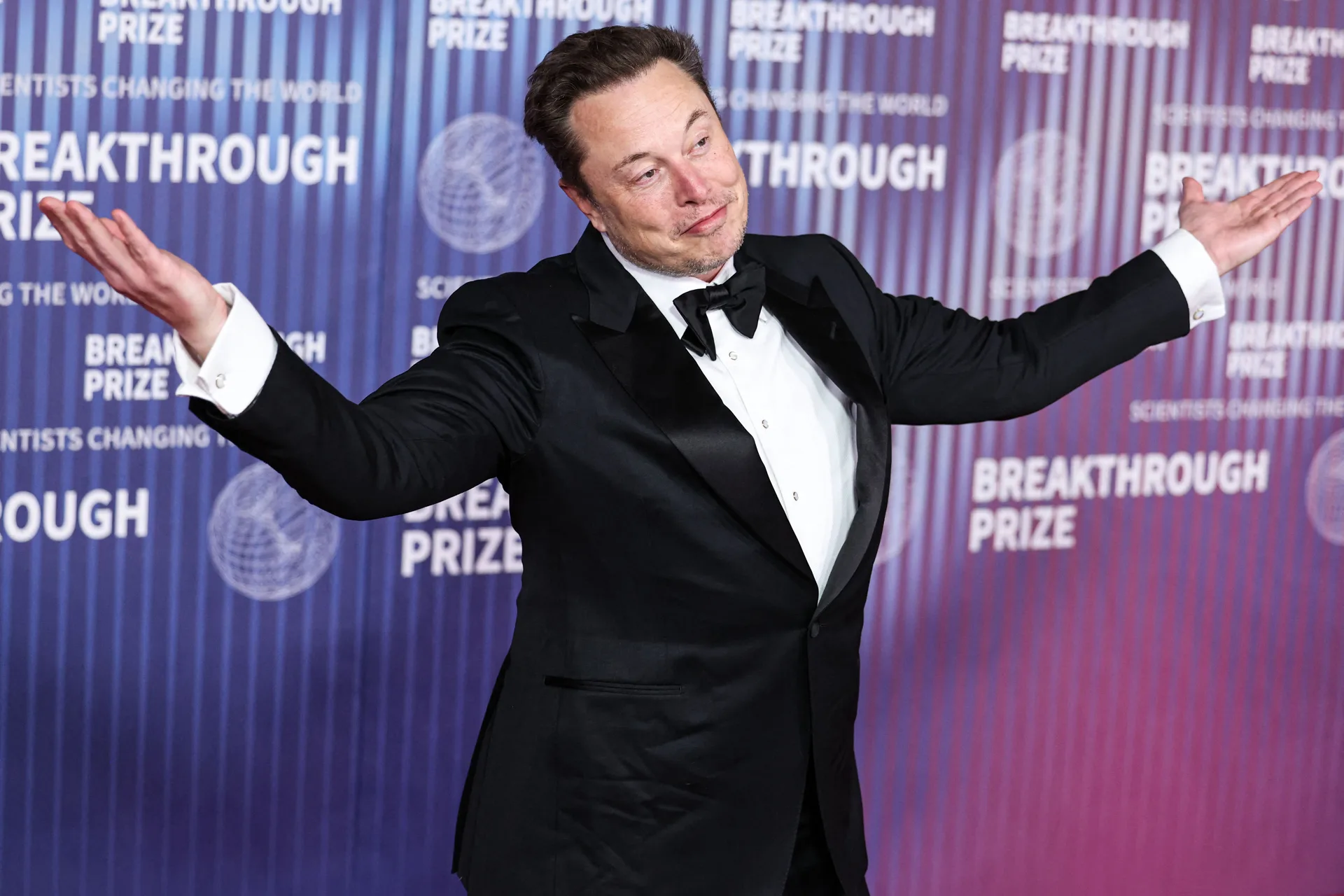
Elon Musk represents a generation of Internet-bred super-rich who believe they are heroes even as they destroy democracies. Photo: Xavier Collin/AFP
They should listen to the shaman Davi Kopenawa, of the Yanomami people, who says: “When the earth is unexpectedly transformed, it doesn’t matter how much money you have. You can run with your money, but when the stormy winds come, you won’t be able to silence them. You’ll wonder what’s happening, and times of lamentation will come.”
But they’ll never listen because it doesn’t suit their purposes. You, we, need to listen. And stop them.
SUMAÚMA has some suggestions of where to start in Brazil. First, we must resist the imposition of a historic cut-off point for demarcation of indigenous land. According to this plot, only the Indigenous peoples who were living on their ancestral lands on October 5, 1988—the date that Brazil’s newest Constitution was enacted—have a right to these territories. This is an obscene move, because a significant proportion of Indigenous peoples were not living on their ancestral lands at that moment, because they had been driven off by non-Indigenous people and State colonization programs. It was flee or die.
But everything about the cut-off point is unfair and absurd. The Federal Supreme Court ruled it unconstitutional, but Congress still passed it. And now Supreme Court Justice Gilmar Mendes, a well-known opponent of Indigenous peoples—among his other highly unrepublican credentials—pulled from the sleeve of his toga a compromise about what is uncompromisable. It was such an absurd, imbalanced farce that APIB, the Alliance of Indigenous Peoples of Brazil, saw fit to withdraw so as not to legitimize illegitimacy.
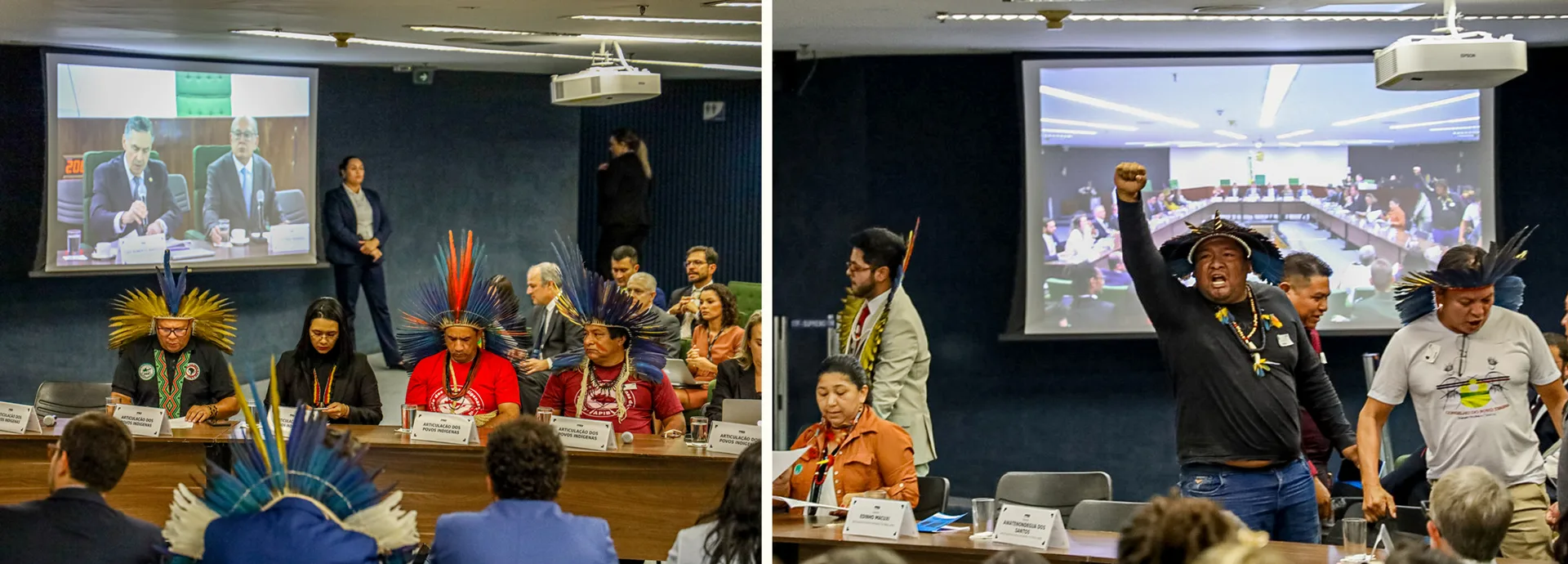
On the left, indigenous representatives follow on a screen as the Supreme Court holds its first hearing on August 5 related to a supposed compromise on the historic cut-off point for demarcation of their land. On the right, they leave the August 28 session chanting “Demarcation now!” Photos: Tukumã Pataxó/APIB
It has been proven that Nature is much better protected on Indigenous lands and conservation units. If there are still standing Forests, it is because of these protected areas. Blocking enforcement of the cut-off point is not just about helping Indigenous peoples but about averting global heating, extreme events like the flooding that destroyed part of Rio Grande do Sul, and criminal fires like the ones that have spewed smoke across Brazil in recent weeks. If we can beat the historic cut-off point by taking a collective stand, far beyond social media and WhatsApp groups, today’s children will not have to live on a planet ever more hostile to life.
Another suggestion: The administration of Luiz Inácio Lula da Silva (Workers’ Party) is a broad front with a majority made up of enemies of Indigenous peoples and the environment—and that’s even in its left wing. Marina Silva, Minister of the Environment and Climate Change, walks a tightrope inside hostile territory in her efforts to curtail deforestation in the Amazon, a true feat in this context. The first Indigenous Peoples Minister Sonia Guajajara is fighting to maintain the historic victory of her appointment while heading up an empty ministry with scarce resources. Congress is dominated—and many deputies and senators are financed—by predatory agribusiness, mining, and the pesticide and ultraprocessed food industries, along with the arms industry and other villains. Given its current composition, Congress has become a lethal weapon. What’s more absurd, these deputies and senators were elected by us. So we need to stop them, because every week they consume a little more Nature and threaten our lives a little more. In the next national elections, in 2026, it is imperative that we remove them from office.
Our suggestion is that you follow events, monitor them, and participate, putting pressure on your representatives and senators to vote against any bill that destroys Nature, opens Indigenous lands to mining, legalizes public land theft, subsidizes soy and beef corporations, legitimizes pesticidal poisoning, and stimulates ultraprocessed foods. You voted them in; you are responsible.
We complain about Congress so much, and deputies and senators have become so discredited, but they didn’t get there simply because they wanted to. They got there thanks to your vote. And they will only stop killing us when they feel us breathing down their necks. Two years from now, we’ll draw up a list of life’s enemies and kick them out—by voting.
Right now, of all the evil bills and packages, three demand our utmost attention, actions, and reactions, besides the cut-off point. Lula—under pressure from Congress, certain members of the Workers’ Party, and his own anachronistic convictions—is advocating the opening of a new oil exploration frontier in the Amazon. We can’t let this happen.
The government’s position on oil, with its plans to boost production, is in explicit contradiction with its official discourse in defense of both the Amazon as well as climate mitigation and adaptation measures on the international stage. This is pure cynicism. This story about needing to produce oil until a just energy transition is achieved is a scam. Investments in energy transition remain ridiculously low and completely incompatible with the pressing need to eliminate oil so we can preserve our quality of life on the planet—and this exposes the Brazilian government’s real policy.
In past decades, the most destructive project of Workers’ Party administrations was undoubtedly the Belo Monte dam and hydroelectric power plant, along with the Jirau and Santo Antônio hydroplants, on the Madeira River, all part of the Growth Acceleration Plan, or PAC. Well, Lula returns for a third term and makes a “New PAC.”
At least two of the new PAC projects are poised to become reiterations of Belo Monte, in the sense that they may brand an administration and a party as destroyers of the Amazon Forest and enemies of humanity. The first is the Ferrogrão railway, which is planned to cut across 933 kilometers of Pará; the second is the paving of federal highway BR-319, which links Manaus, in Amazonas state, to Porto Velho, in Rondônia state. Both will trigger a chain of destruction in the Forest, which is already dangerously close to the point of no return. As with Belo Monte, the mere announcement of these mega-projects has fueled a rush toward annihilation.
We cannot let either the Ferrogrão railway or the paving of highway BR-319 become new Belo Montes. One Belo Monte is shame enough for the world’s most biodiverse country. But they aren’t going to stop. Only we can prevent these mega-works projects from forming yet another monument to the climate catastrophe.
A good number of people fought against Belo Monte. But the majority not only failed to fight but also defended construction of the dam. Now they have a good opportunity to make up for this mistake and for their omission, which cost lives—and continues to do so.
There is a lot more destruction going on. But we can start with these issues—and it will make a difference.
This is a call to life. You have no choice but to stop Earth’s killers—or watch your world die.
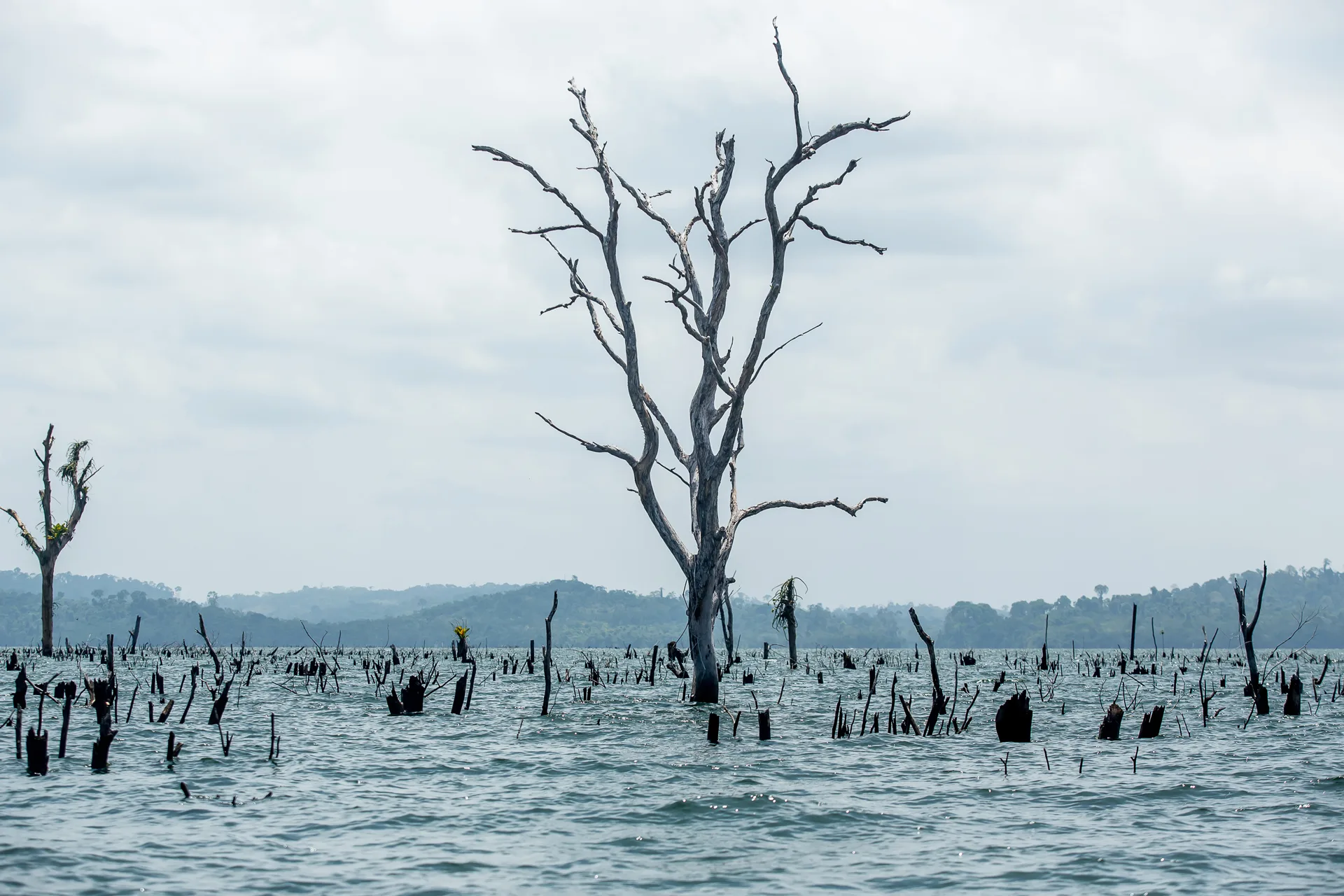
Planet-Xingu after Belo Monte. Photo: Lela Beltrão/SUMAÚMA
Text: Eliane Brum
Fact-checker: Plínio Lopes
Proofreader (Portuguese): Valquíria Della Pozza
Spanish translation: Meritxell Almarza
English translation: Diane Whitty
Photo Editor: Lela Beltrão
Editorial workflow: Viviane Zandonadi
Editor-in-chief: Talita Bedinelli
Editorial director: Eliane Brum





